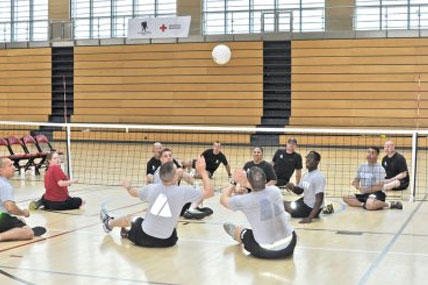Defense Secretary Chuck Hagel and Eric Shinseki, Secretary of the Department of Veterans Affairs, said a UN treaty requiring signatory nations to improve services and accessibility to the disabled is good for American troops and its disabled veterans.
In separate statements submitted to the Senate Foreign Relations Committee on Thursday, the two combat-wounded Vietnam veterans urged the Senate to ratify the treaty. The agreement has broad support from veterans' organizations, but is viewed with suspicion by some conservative groups who believe it could be used to alter American law regarding decisions about children's health -- especially with respect to birth control and abortion -- and home-schooling.
The Senate panel met Thursday morning to hear Secretary of State John Kerry, also a Vietnam veteran, offer support for Senate ratification of the treaty.
Kerry said language included in the treaty specifically states that nothing in it can be used to alter or amend American law on matters of parental rights governing healthcare or education.
Hagel, in his statement, said thousands of Iraq and Afghan war veterans will be living with disabilities for the rest of their lives. The more accessible the world is to the disabled, the greater opportunities these veterans will have, he said.
"These wounded warriors deserve to have the same opportunities to live, work, and travel as every other American, and to participate fully in society whether at home or abroad," Hagel said.
The treaty also will benefit military personnel who have family members with disabilities, he said, many of whom now have to choose between their families and their careers when considering assignments in other countries.
Shinseki said the treaty will help the country's 5.5 million disabled veterans -- as well as 50 million other Americans who are disabled -- study and work overseas by improving access.
In his statement, Shinseki drew on his own experience to argue that the treaty will also directly benefit servicemembers dealing with injuries.
"I served for roughly 10 years in Europe as a disabled soldier following my tours in Vietnam," said Shinseki, who lost much of his right foot to a landmine. "I recall the absence of aids for the disabled in many places where I served -- ramps, lifts, automatic door openers, among other devices that are commonly available in this country."
Twenty-one veterans and military associations have endorsed the treaty, including The American Legion, Paralyzed Veterans of America, Disabled Veterans of America, Veterans of Foreign Wars and the Iraq and Afghanistan Veterans of America.
Only one group, AMVETS, withdrew its support after its leadership concluded nothing in it would actually benefit U.S. veterans.
Daniel Dellinger, national commander of The American Legion, reiterated his group's support for the treaty after the morning hearing.
"We need to ratify this treaty," he said. "I think [the hearing is] going well and I think it will be ratified."

























